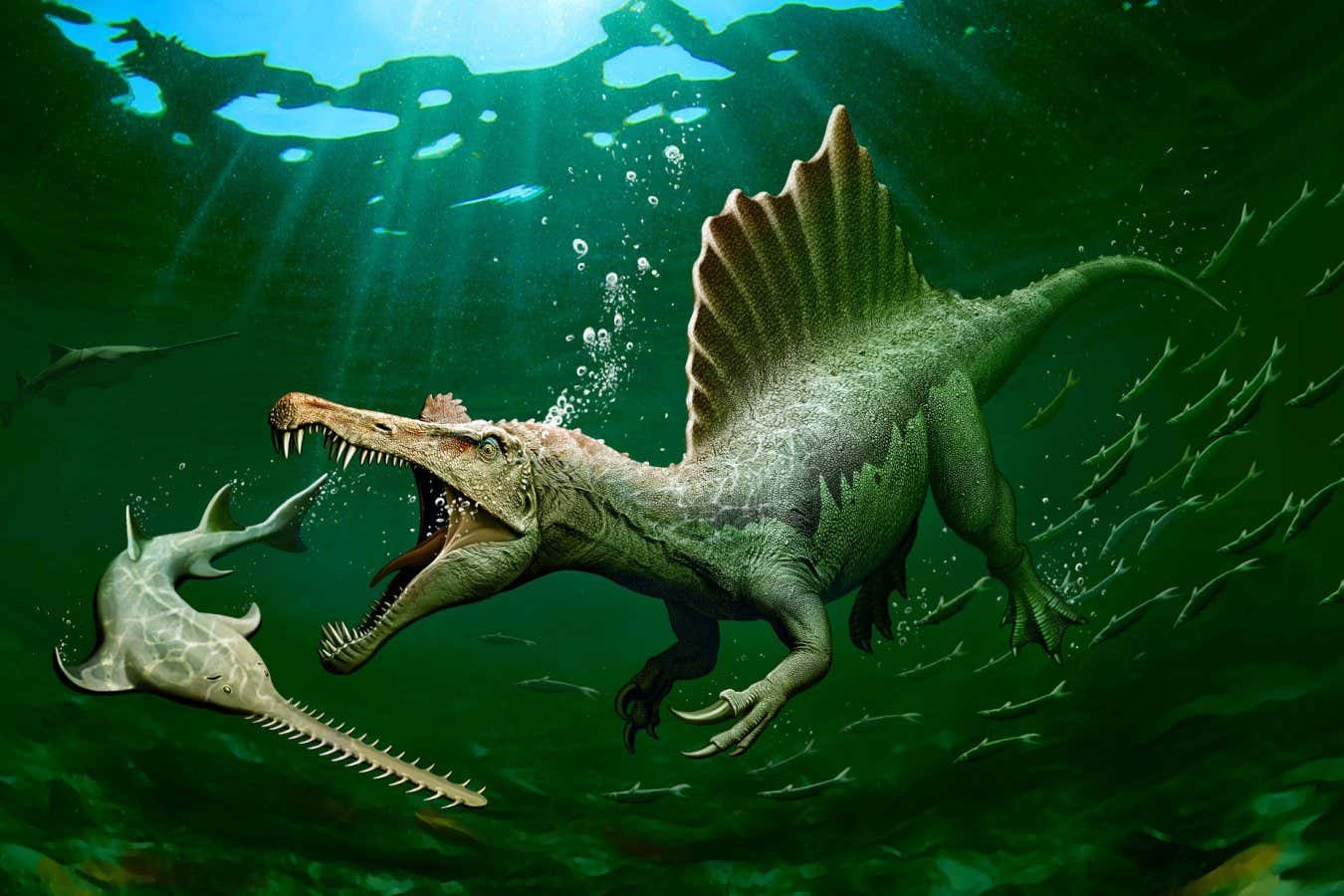
Paul Ryding/Joseph Woodhouse
Dinosaurs dominated the land for around 180 million years. Yet we have little idea what life was like for these prehistoric icons as interpreting fossils that are at least 65 million years old is fiendishly difficult. Finding out more had long seemed impossible. No longer.
In the past few decades, new technologies and new specimens have provided previously unimaginable windows into their behaviour and ecology. This, along with insights from living animals, is finally allowing palaeontologists to build a picture of dinosaur life ranging from parental care, migration and hunting styles to communication, sociality and combat.
David Hone is one of those working to glean more about life in the age of dinosaurs. A palaeontologist at Queen Mary University of London, he has collated the latest findings into a forthcoming book, Uncovering Dinosaur Behavior: What they did and how we know. He gave New Scientist a taste of what has been discovered, from migrating herbivores and semi-aquatic predators to why ostriches are a problem for understanding which dinosaurs doted on their young.
Colin Barras: Some of the largest dinosaurs – sauropods such as Diplodocus or Brachiosaurus, for example – were nothing like any living animal. How do you even begin to work out how they behaved?
David Hone: One of the most important things we can do as palaeontologists is use our understanding of modern animal ecology and behaviour in a much better way. Mouth shape is a good example. If you’ve got a small mouth, you are usually targeting individual buds or leaves – high-nutrition foods. If you…

Felecia Phillips Ollie DD (h.c.) is the inspiring leader and founder of The Equality Network LLC (TEN). With a background in coaching, travel, and a career in news, Felecia brings a unique perspective to promoting diversity and inclusion. Holding a Bachelor’s Degree in English/Communications, she is passionate about creating a more inclusive future. From graduating from Mississippi Valley State University to leading initiatives like the Washington State Department of Ecology’s Equal Employment Opportunity Program, Felecia is dedicated to making a positive impact. Join her journey on our blog as she shares insights and leads the charge for equity through The Equality Network.




